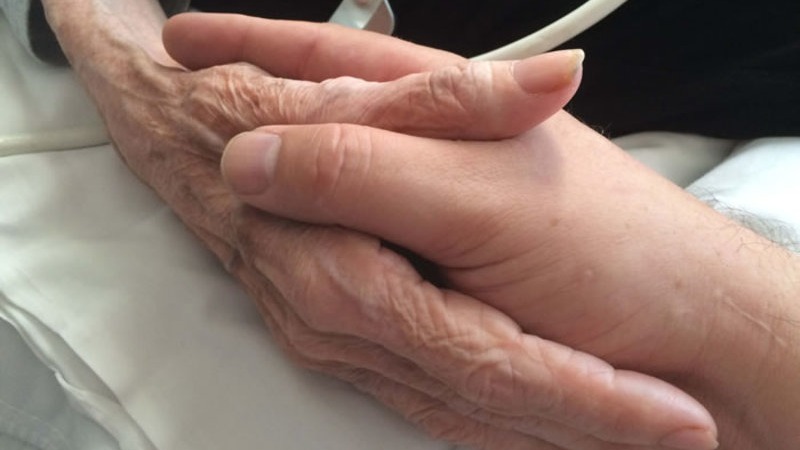Treating the increasing numbers of adults with multiple chronic conditions
MDlinx Feb 01, 2023
As the population ages, the number of older adults with multiple chronic conditions (MCC) will likely rise. Since patients with MCC often have complex healthcare needs, researchers are investigating emerging models of care to best serve this population.

There are five primary areas of need that physicians and care teams can focus on to better manage the range of conditions that may be present in MCC.
An especially important need is for patient-centered care, which doctors can provide by tending to the provider-patient relationship and making accommodations as appropriate.
5 areas of need for patients with MCC
A review published by BMC Geriatrics identified the five primary areas of need among patients with MCC.
McGilton KS, Vellani S, Yeung L, et al. Identifying and understanding the health and social care needs of older adults with multiple chronic conditions and their caregivers: a scoping review. BMC Geriatrics. 2018;18(1):231.
These needs were formulated from a review of published studies as well as feedback from stakeholders: physicians, caregivers, and patients.
Need for information. The most commonly identified need among patients with MCC pertains to information about their medical conditions. Patients expressed the need for the information they can understand, delivered without the use of technical terms or medical jargon. However, they benefit from—and want—a thorough explanation of their diagnoses and treatment options.
Some patients reported a “lack of timely information” and “poor communication” among the numerous healthcare professionals (HCPs) involved in their treatment.
Patients who felt that their own concerns often went unheard became distrustful and described feeling disempowered.
Coordination of services and support. When proper services and support are unavailable, everyone suffers. Lack of service coordination can leave patients subject to minimal access to specialists, long wait times for referrals, conflicting opinions among doctors, and an inability to get multiple HCPs to communicate together in one discussion.
As a result, patients may struggle to stick to their treatment plans and manage their symptoms. Without proper guidance, some patients even formed routines that directly defied doctor’s orders, which led to anxiety over their decisions, as well as frustration and feelings of isolation.
Preventive, maintenance, and restorative strategies. Older adults, caregivers, and HCPs spoke about the need to “prevent further deterioration in daily living, maintain current levels of function and restore any lost abilities,” according to BMC Geriatrics.
Many older adults want to manage their conditions so that they don’t worsen. They also want to maintain their current lifestyle by continuing to perform activities of daily living, which can become difficult.
Training for themselves and their care team. The three groups—older adults with MCC, their caregivers, and their physicians—all wanted training to help manage the patient’s symptoms and make plans for their future. Patients were also interested in managing adverse health outcomes and being put in touch with support groups. One of their other interests was in learning how to use technology to support these efforts.
Patients wanted HCPs to learn how to work with people with dual sensory impairments so that patients can maintain their dignity. Both patients and their caregivers desired more education about patients’ medications.
Patient-centered approaches. Older adults want to be treated like people, not statistics. They require patient-centered communication and participation in medical decision-making.
Additionally, patients with MCC want to build trusting, lasting relationships with their providers, according to the BMC Geriatrics research.
Meeting patients where they are
Although the range of needs among patients with MCC is wide, there are evidence-based models of care that clinicians can employ to better meet those needs.
One such model is patient-centered care, according to a study published by Health Services Research.
Savitz LA, Bayliss EA. Emerging models of care for individuals with multiple chronic conditions. Health Services Research. 2021;56(S1):980–989.
For this study, researchers conducted a literature search and interviewed nine clinical experts.
Seven of the nine clinicians mentioned the importance of a strong provider-patient relationship, which plays a crucial role in patient-centered care. One way to implement this care model is by accommodating patients based on their level of ability and comfort.
Because patients may be more comfortable at home, expanding access to home care may become an element of patient-centered care. This can include home visits, remote monitoring, hospital at-home, and home-based palliative care. These measures can help providers in “meeting MCC patients where they are.”
Social issues add to complexity
Many patients with MCC also have social risks, which should be identified and addressed when employing a holistic care approach. Experts say this can be complicated.
This is not easy; patients are extremely variable—many are medically complex, socially, and psychologically complex.
“Those with psychological complexity often have impaired ability and separate social issues like unemployment, homelessness, domestic violence—all exacerbate their medical conditions,” the expert told Health Services Research.
Treating older adult patients with MCC requires a multifaceted approach. In their efforts to best serve this population, HCPs should put patients at the center of the process.
What this means for you
Patients who live with MCC frequently rely on the help and guidance of their care team to manage their daily lives. Many of these patients express needs pertaining to information, support, training for their care team, and patient-centered care. You can help meet these needs by participating in a collaborative relationship with your patient, making accommodations based on their ability and resources, and taking a holistic approach to treatment.
-
Exclusive Write-ups & Webinars by KOLs
-
Daily Quiz by specialty
-
Paid Market Research Surveys
-
Case discussions, News & Journals' summaries